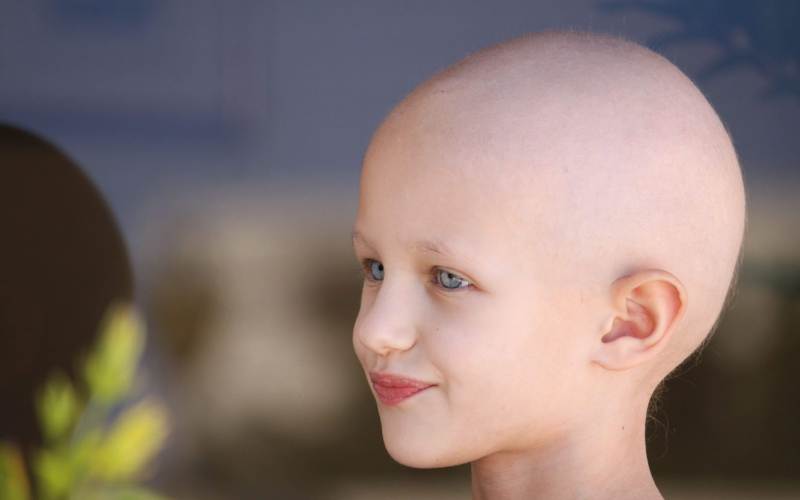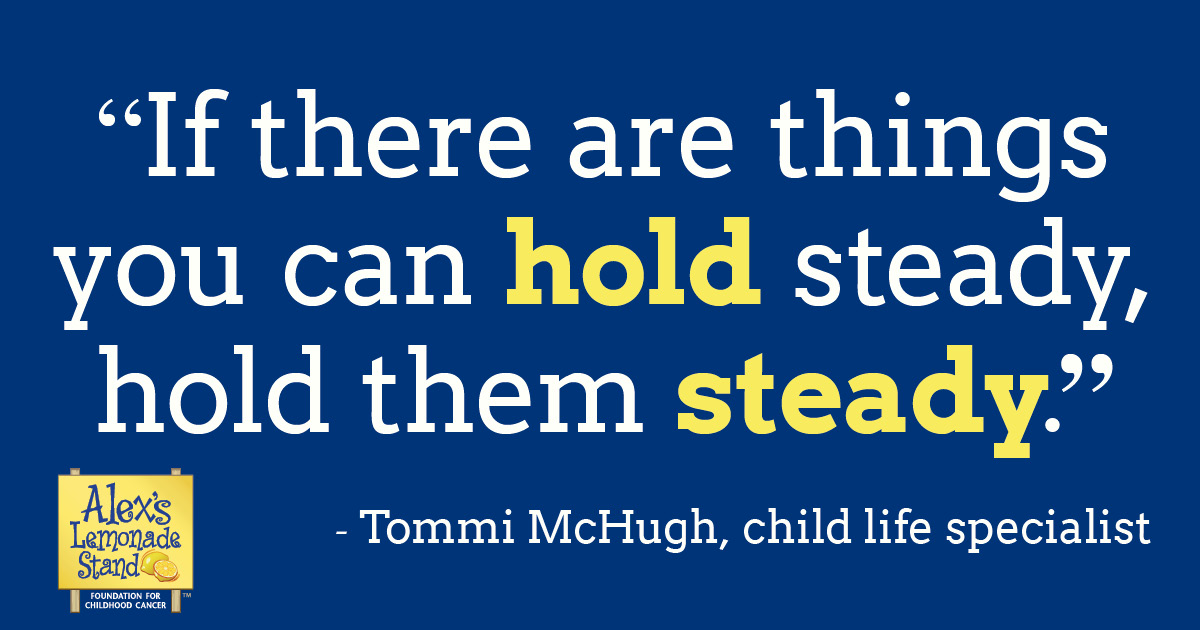
After a childhood cancer diagnosis, life can feel out of control—and it can be hard to hold your child steady through treatment.
by Trish Adkins, ALSF
The moment your child is diagnosed with childhood cancer is the moment your world shifts—forever. Fear, chemotherapy, surgery, radiation, days and nights in the hospital and blood draws become part of your daily routine. For your family, life can feel out of control—and it can be hard to hold your child steady through their diagnosis.
Tommi McHugh, a child life specialist and educator at the Children’s Hospital of Colorado in Denver, says there are things you can do to help your child and your entire family feel rooted during childhood cancer diagnosis, treatment and recovery.
“Everything is so out of control. So if there are things you can hold steady, hold them steady,” says Tommi. Here are four things that Tommi recommends parents and caregivers do to help their family cope following a cancer diagnosis:
1. Normalization
Letting your kids be kids through their cancer treatment can help them feel like themselves. All children can benefit from being with friends, making choices and being allowed to feel all the emotions that are normal—happy, sad, angry and goofy, too. It is important to encourage your children to participate in the activities they always have, as long as those activities are safe. “If their counts are good, they can play,” says Tommi.
2. Limit Setting
Holding steady to family limits can go a long way to helping kids feel like things are not out of control. According to Tommi, when parents change the rules or let kids have everything they want, it increases their fear instead of making them feel safe. Stick to your family rules, behavior expectations and consequences as best as you can.
3. Maintaining Routines
It may sound impossible to maintain your family routine in the hospital or clinic setting. But, just like limit setting, maintaining routines is a critical part of helping your child to feel steady. So stick to family routines as much as possible. If your child eats lunch at 11:30 each day, then have them eat lunch at that time. If bedtime is 7:30 pm, try and get your child to bed at that time, no matter where you are. Parents should feel okay to advocate for those things with their child’s medical team. Discuss your child’s routine right away with the medical team and ask what accommodations can be made to keep your child steady in their routine.
4. Giving Control
According to Tommi, one of the hardest things for kids battling a chronic or life-threatening illness is that they lose their sense of control. This holds true for all ages—infants who do not get to eat when they want to teenagers who are no longer able to flex their independence. Parents can give their children a sense of control by providing them with real choices and giving them permission to make those choices. Contrived choices like— “Do you want to take your medicine now or in a few minutes?”—make kids really mad. However, choices they can make like “What would you like for dinner?” or “Do you want to help set up a medication schedule”—empower kids and giving them a sense of control.

